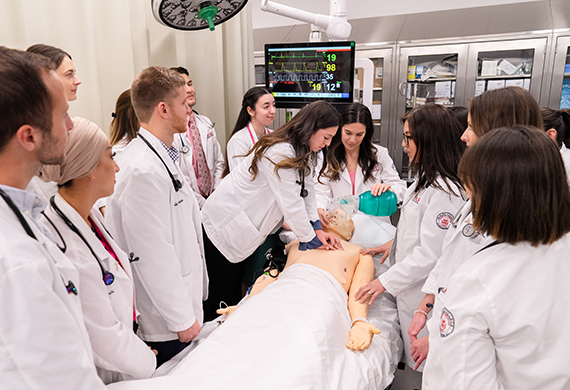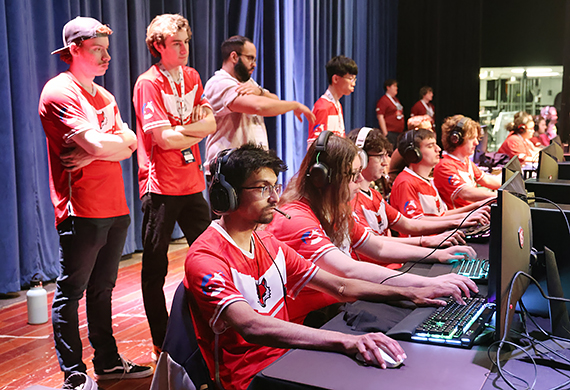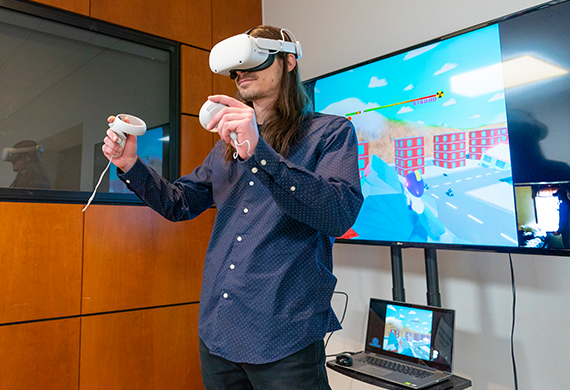Meanings of Property
Scholars and teachers from a variety of disciplines and representing the nation's top colleges and universities will take up residence on campus to delve into the topic for the month of June.
POUGHKEEPSIE (May 12, 2014) –Is property a God-given natural right for human self-preservation, a means of controlling others, a way to exploit and accumulate, or is it an essential mediator between life’s individual and social dimensions?
These complex questions, which arise in many academic disciplines, often without focused discussion or interrogation. But they will be at the center of “The Meanings of Property,” a four-week summer institute to be held at Marist next month thanks to funding from a competitive grant from the National Endowment for the Humanities through a competitive grant process.
"The meaning of property is different for each profession and academic discipline, and changes historically, said Dr. Ann Davis, Marist Associate Professor of Economics, who secured the NEH grant and is coordinating the institute. “Given the centrality of property for the economy and for governance, it's important to understand these variations in a broader perspective.” While property is a part of everyday life for citizens in advanced countries, it is also a concept with a deep history and connection to every known civilization. Better understanding of the concept of property is important for the efficiency of the economy, equity of distribution, and sustainability of natural resources. Property is also relevant to scholarship and the arts, as well as innovation.
"We look forward to welcoming to the Marist campus an accomplished group of scholars and teachers from around the country," said Vice President for Academic Affairs Dr. Thomas Wermuth, an expert on Hudson River Valley history, who will participate in the institute. "Participants will form a dynamic community of thinkers discussing and debating all aspects of property and its meaning across disciplines."
The institute will bring to Marist 25 faculty members selected from a pool of national candidates, who teach in the fields of economics, English, political science, bioethics, philosophy, geography, sociology, history, and the law, and represent top colleges and universities, including Yale, the University of Chicago, and the University of California, Berkeley for open-ended, small group discussions with a group of visiting scholars, who are leaders in their respective fields, including:
- Mary Poovey, literary scholar at New York University
- Alan Ryan, Professor of Political Science at Princeton University
- John R. Searle, Professor of Philosophy from University of California at Berkeley
- Hendrik Hartog, Professor of History at Princeton University
- Stuart Banner, Professor of Law at the University of California at Los Angeles
- Kenneth Pomeranz, Professor of History at University of Chicago
- Robert J. Goldstein, Professor of Law at the United States Military Academy at West Point
Also participating from Marist are: Academic Vice President and Hudson River Valley historian Thomas Wermuth; Director of the Hudson River Valley Institute Col. James Johnson, former military historian at West Point; and Senior Academic Technology Officer Josh Baron, who will explore with participants the implications of intellectual property for online teaching and scholarly collaboration.
Additionally, Dr. Peter Groffman of the Cary Institute of Ecosystem Studies, a Marist partner in nearby Millbrook, N.Y., will explore the implications of suburban “back yards” for global climate trends.
Summer institute participants will reside at the Marist campus and form a scholarly community for the month of June, interacting with the visiting scholars. They will also enjoy scenic vistas of the Marist campus, and visits to New York City and elsewhere in the Hudson Valley region. The participants will work together to improve their individual scholarship and teaching, and explore the potential for ongoing collaboration, as well.
About the NEH
The National Endowment for the Humanities (NEH) is an independent federal agency created by Congress in 1965 to support the humanities. NEH grants are awarded on a national competitive basis, judged by independent scholars, to support the advancement of the study of history, culture, and literature as well as social sciences in American colleges and universities.
For further information, contact Dr. Ann E. Davis, Marist College or see the website http://www.marist.edu/management/neh.



